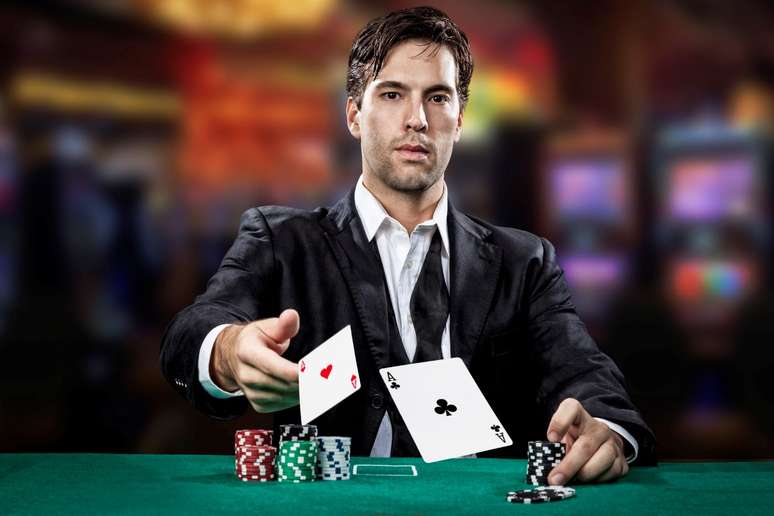Emotional involvement in games can be attributed to dopamine, an important brain neurotransmitter
On June 19, the Senate Committee on Justice and Citizenship (CCJ) approved a bill (PL) authorizing gambling in the country, including Jogo do Bicho, bingo, casinos and horse betting. The proposal now goes to the Plenary Assembly and, if approved without changes, will go to President Luiz Inácio Lula da Silva for approval. The project also creates several regulations, including, for example, that the Ministry of Finance will coordinate the activities, that companies will have to collect taxes, that there will be specific locations for the practice and that only people over the age of 18 will be allowed play.
Persons under the age of 18, people diagnosed with compulsion to gamble – registered in the National Registry of Prohibited Persons – and persons prohibited by law will not be able to bet. Senators opposed to approval argue that the release of the games will increase spending on mental health in the SUS. The exploitation of games of chance in Brazil has been prohibited since 1946. However, bingo returned with the Zico Law (Law 8672/93) of 1993, reaffirmed five years later by the Pelé Law (9615/98), which allocated 7% from bingo house revenues to bodies representing Olympic and Paralympic sports. A new ban on bingo was decreed in 2004 by President Lula, through provisional measure 168/04 of February 2004.
From fascination to addiction
Games have always fascinated people, causing challenges, bringing rewards and a feeling of satisfaction when progressing along a path. However, what could be just a pastime or a mere pleasure, can turn into an addiction and cause the player to lose not only money, but also mental health, when gambling becomes an addiction.
This emotional involvement with games can be attributed to dopamine, an important brain neurotransmitter. The number of benefits provided by the National Institute of Social Security (INSS) to people with mental illnesses due to gambling addiction, considered an illness, has increased after the Covid-19 pandemic. In three years, in Brazilian territory, cases have reached 350%, referring to gambling addiction. This was stated by the National Union of Labor Auditors (Sinait).
Katia Branco, psychiatrist, specialist in impulse disorders and supervisor of residents of the gambling and impulse disorders clinic of the Institute of Psychiatry of the Hospital das Clínicas de São Paulo, in an interview with Radio Eldorado on June 21 he declared that the liberation of gambling in Brazil is a delicate issue, since betting is a problem in our society and that, with this new authorization, there is a great risk of increasing cases of addicted people from gambling.
She emphasizes that it is a condition of addiction, and it is very clear to her that it will be very difficult for these people not to have access to games, even if these prevention or containment measures are effective, since anyone who wants to play will not be able to Of. “Today, even though gambling is prohibited, our clinic at the Institute of Psychiatry of the Hospital das Clínicas welcomes a large number of people and finds it very difficult to manage the disease,” said the doctor.
Tricks for playing
He stressed during the interview that people end up, one way or another, finding ways to play the game: “If it’s banned today, they can do it, what’s going to stop them from doing it when it’s released?” by simply entering the name into a registry, creating a restriction? This is really a concern we have… Anyone listening to us, if they have this knowledge or live with someone who has this problem, they might think ‘those who have this problem ‘an addiction will always find a way to cheat to achieve their goal’ “.
The psychiatrist explained that there are several areas in our brain, including the reward center. Therefore, as soon as an abnormal activation occurs or a stimulus occurs, regardless of any substance or medium, an addiction will be created. Whether it’s alcohol, drugs, like crack or cocaine, or any other type of substance. Today, according to her, the treatments to treat different types of addiction are similar, because the brain regions that are activated are the same as those involved in any addiction. “The point ends up being the same, whether it’s addiction to gambling, alcohol, drugs or even psychotropic drugs, such as controlled medications like benzodiazepines,” the doctor stressed.
Taxes vs. healthcare
Those in favor of releasing the games justify it by saying the spaces will generate jobs and taxes. Opponents argue that public health costs will increase in the SUS. Kátia reminds that this is an extremely important point, because today the healthcare system is going through a series of difficulties and there is no support to adequately cover the costs.
“It goes without saying that the resources will be allocated… Sorry, if today we have not yet managed to guarantee a better allocation of resources to healthcare, we see a series of obstacles, who will guarantee that this happens with the exit? And who can think or realize that the release of the games will allow us to improve financing [do paciente]? This account will never be closed. In a country like ours, the unblocking of this type of activity does nothing but put us in an area of greater risk and with more difficulty, probably, no one can say, but this is the truth. Looking at our current reality, it is very difficult that with the release of these games our economy will be able to cope with the public health system, improving or increasing the quality of care and supply of medicines. And if we point out here that there is a risk of an epidemic, if this risk exists, what is the benefit of releasing games in our society? Here’s my question and I would like to hear an answer from interested parties?”, declared the doctor.
Treatment
Katia reiterates that families suffering from cases of game addicts do not consider them “bad or lazy”, as they are patients who need to be treated. Treatment usually involves medications, prescribed by a psychiatrist, to stabilize the patient, accompanied by psychotherapy. The participation of family and friends is essential for the process to be effective and for the patient to have a quality of life.
In São Paulo, the Institute of Psychiatry (IPq) of the Hospital das Clínicas of the Faculty of Medicine (HCFM) of the University of São Paulo has the outpatient clinic for pathological gambling (AMJO) and the integrated outpatient program for impulse disorders. For information on both, .
Source: Terra
Ben Stock is a lifestyle journalist and author at Gossipify. He writes about topics such as health, wellness, travel, food and home decor. He provides practical advice and inspiration to improve well-being, keeps readers up to date with latest lifestyle news and trends, known for his engaging writing style, in-depth analysis and unique perspectives.








